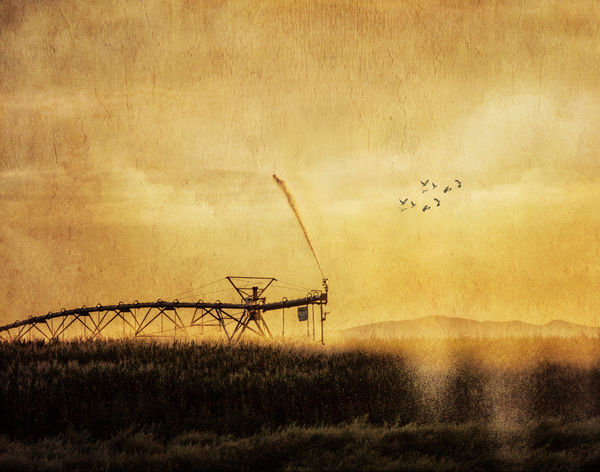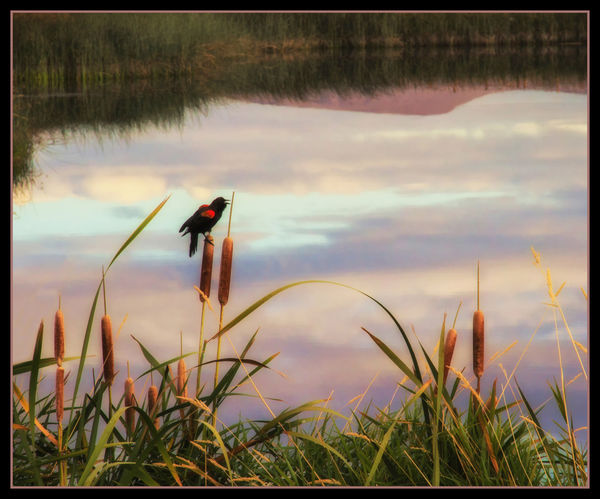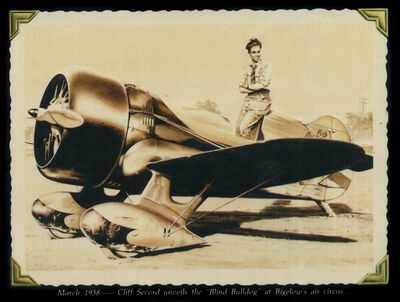SOOTC vs. Post Processing argument again?
Oct 17, 2019 18:10:02 #
I believe that if I started a thread entitled "Photographing the Mating Habits of the North America Cuckoo Bird", the SOOTC vs. Post-Processing argument would arise and dominate or even overtake the conversation.
I think this "argument" is ridiculous but I will admit that my lifelong job as a professional photographer and my starting my career in the "old school" has tainted my opinion. I'll explain.
In the olden days of film photography, precise and accurate camera work was more important in that there were few and difficult remedies for poorly crafted negatives or transparencies. There were many specialized chemical treatments and techniques for darkroom manipulation but most of these were time-consuming, painstaking, costly, and oftentimes resulted in lesser quality, and production and delivery delays. So, as a veteran of this culture, I try to address as much of I can at the camera whenever possible and still encourage others to do so, even with the advent and great flexibility in digital imaging. Whether performed in the old-fashioned darkroom on in a computer-driven program, tweaking, enhancement, and special effect added post-shooting is perfectly acceptable and routine as far as I am concerned- that is not tantamount sloppy shooting and radical post-processing.
In professional photography, we have the added element of the CLIENT who expects good work delivered on time. Frankly, how we arrive at a good image is of no consequence to the client or for that matter anyone else we want to impress, persuade, gift, or illustrate anything or tell a story to with our images. Whether you are pleasing a client, selling images at a gallery or crafts show, submitting pictures to an editor for publication, or inviting the neighbors in for a slideshow of your last vacation-who case, other than yourself, how you made those images? They will stand or fall on their own. There is nothing to prove in the process!
In professional circles, if you over-process an image and it becomes apparent - it the pastel dress has turned to "hot-pink" or the shrimp looks like a lobster because to went nuts on a slider, you will get an objection. If you over sharpen or under soften, you may run into a blooper! If you would rather have an azure blue sky instead of a sky blue sky in a landscape, who is on gonna question you? Perhaps the editor at Nation Geographic or the curator at the Hayden Planetarium- never know? Lots depend on who you are working for and what you want to accomplish or if you just wish to express your vision differently.
Enhance the dynamic range of a photojournalistic image that does not amount to fakery. In fine artwork, there is no real or imagined "code of ethics" that dictates everything must be authentic. If someone takes pride in his or her ability to create perfect images without any further enhancement, they too deserve respect and should not be criticized for the philosophy. There are some situations where a photographer can not cull every image they are not completely satisfied with and have no othere alternative but to salvage it in post-processing. Theses should be individual artistic, practical and personalized choices.
I think this "argument" is ridiculous but I will admit that my lifelong job as a professional photographer and my starting my career in the "old school" has tainted my opinion. I'll explain.
In the olden days of film photography, precise and accurate camera work was more important in that there were few and difficult remedies for poorly crafted negatives or transparencies. There were many specialized chemical treatments and techniques for darkroom manipulation but most of these were time-consuming, painstaking, costly, and oftentimes resulted in lesser quality, and production and delivery delays. So, as a veteran of this culture, I try to address as much of I can at the camera whenever possible and still encourage others to do so, even with the advent and great flexibility in digital imaging. Whether performed in the old-fashioned darkroom on in a computer-driven program, tweaking, enhancement, and special effect added post-shooting is perfectly acceptable and routine as far as I am concerned- that is not tantamount sloppy shooting and radical post-processing.
In professional photography, we have the added element of the CLIENT who expects good work delivered on time. Frankly, how we arrive at a good image is of no consequence to the client or for that matter anyone else we want to impress, persuade, gift, or illustrate anything or tell a story to with our images. Whether you are pleasing a client, selling images at a gallery or crafts show, submitting pictures to an editor for publication, or inviting the neighbors in for a slideshow of your last vacation-who case, other than yourself, how you made those images? They will stand or fall on their own. There is nothing to prove in the process!
In professional circles, if you over-process an image and it becomes apparent - it the pastel dress has turned to "hot-pink" or the shrimp looks like a lobster because to went nuts on a slider, you will get an objection. If you over sharpen or under soften, you may run into a blooper! If you would rather have an azure blue sky instead of a sky blue sky in a landscape, who is on gonna question you? Perhaps the editor at Nation Geographic or the curator at the Hayden Planetarium- never know? Lots depend on who you are working for and what you want to accomplish or if you just wish to express your vision differently.
Enhance the dynamic range of a photojournalistic image that does not amount to fakery. In fine artwork, there is no real or imagined "code of ethics" that dictates everything must be authentic. If someone takes pride in his or her ability to create perfect images without any further enhancement, they too deserve respect and should not be criticized for the philosophy. There are some situations where a photographer can not cull every image they are not completely satisfied with and have no othere alternative but to salvage it in post-processing. Theses should be individual artistic, practical and personalized choices.
Oct 17, 2019 18:22:55 #
I never had a full blown dark room when I shot film (although I did some developing and making contact prints) - I love having a "dark room" in my computer.
Oct 17, 2019 18:24:02 #
E.L.. Shapiro wrote:
I believe that if I started a thread entitled &quo... (show quote)
In Film Days as a Professional Photographer, I had to keep tabs on the professional lab printing my work to assure proper color printing. I would do that with a color checker image taken by me. I would also tell the lab if the brides dress was white or a very light tan. Typical errors would show up in the white box with either a yellow, cyan or magenta cast. Gave up weddings before I went digital.
Oct 17, 2019 18:28:18 #
Unfortunately, quite a bit of main discussion forum is comprised of arguing and criticizing, with the Great Truth Tellers all confident that their own opinion is the one and only truth. There is also the element of the interactions simply being entertainment for many of the participants.
Fortunately, because of my short-lived departure and subsequent return to the fold, I was reminded many times over that there is a huge number of talented and thoughtful people here! Those who give of their time unselfishly, encouraging others and participating in or creating value-based discussions.
Many of these quality exchanges are found in the volunteer-moderated forums (see "all sections" at the bottom of this page). But there are gems to be found in main discussion also. Let's focus on the positive aspects, eh?
Fortunately, because of my short-lived departure and subsequent return to the fold, I was reminded many times over that there is a huge number of talented and thoughtful people here! Those who give of their time unselfishly, encouraging others and participating in or creating value-based discussions.
Many of these quality exchanges are found in the volunteer-moderated forums (see "all sections" at the bottom of this page). But there are gems to be found in main discussion also. Let's focus on the positive aspects, eh?
Oct 17, 2019 18:35:08 #
E.L.. Shapiro wrote:
I believe that if I started a thread entitled "Photographing the Mating Habits of the North America Cuckoo Bird", the SOOTC vs. Post-Processing argument would arise and dominate or even overtake the conversation.





Oct 17, 2019 18:37:26 #
Oct 17, 2019 18:37:38 #
E.L.. Shapiro wrote:
These should be individual artistic, practical and personalized choices.
Hear, hear. Well said.
Mike
Oct 17, 2019 18:40:58 #
Oct 17, 2019 19:03:18 #
While you can't always get it right in camera (gremlins have a way of sneaking in and messing with you) and you have to resort to post processing to save the image, getting it right in camera sure makes any post work a lot easier. It should go without saying that getting it right in camera ought to be the goal
Oct 17, 2019 19:10:24 #
...I sat in the dentist chair today and on the wall was a seascape painting by Monet...I felt that what I was looking at was the artist interpretation of the beach and the tranquility of the piece told the story...it didn’t matter whether it was real or not...it’s the same way I feel about Ansel Adams work...it doesn’t matter if he manipulated the final piece in his darkroom...what he was doing created a feeling of grandeur and solitude at the same time...imagine being able to create a feeling in your work...that’s what every good piece is able to capture...some type of emotion...story...feeling...it’s your art...I think what happens sometimes is our emotions don’t like to be fooled with photographs...we want them to be real and when they are not there is a letdown...disappointment...I think photography just needs to learn to deal with both types of images...because there are some really talented work out there...both real and imagined...
Oct 17, 2019 19:18:33 #
Rich1939 wrote:
Well poo, I guess I'm too weak to not be drawn into this discussion after all.... It should go without saying that getting it right in camera ought to be the goal
Rich, your comment ignores all of us who have no interest in presenting the reality of the moment the shutter button was punched 🤗
.
The irrigation apparatus and spray is real; the sky and birds are not.

Every element in the photo is real, but PP enhanced the colors and softness.

Oct 17, 2019 19:25:45 #
Linda From Maine wrote:
Well poo, I guess I'm too weak to not be drawn into this discussion after all.
Rich, your comment ignores all of us who have no intention of attempting to capture reality at the time of the shutter button punch 🤗
Rich, your comment ignores all of us who have no intention of attempting to capture reality at the time of the shutter button punch 🤗
Linda, I could never ignore you

On the other hand, reality has no part in whether or not the exposure et-al is correct. If you soft focus with intent, then didn't you get it right (in camera) for your use?
Oct 17, 2019 19:27:13 #
Oct 17, 2019 19:28:09 #
Rich1939 wrote:
Oh, right you are Linda, I could never ignore you 
On the other hand, reality has no part in whether or not the exposure et-al is correct. If you soft focus with intent, then didn't you get it right (in camera) for your use?

On the other hand, reality has no part in whether or not the exposure et-al is correct. If you soft focus with intent, then didn't you get it right (in camera) for your use?
 Fuzzy brain time of day, I'm leaving now. Thanks Rich!
Fuzzy brain time of day, I'm leaving now. Thanks Rich!Oct 17, 2019 19:31:51 #
déjà vu. Yeah, I know- being 1/2 Canadian I even included the accent marks! OK, this complaint is old hat, hackneyed old old kvetching (look up that word). It's just that I try to confine my activities on this forum to answering technical questions in areas that I am familiar with and avoid the other stuff. Nonetheless, in the last number of threads I participated in the popular favorites always seem to seep in even if they have nothing to do, even remotely, withthe topic or question at hand. Pro and con post processing, filters, and flash usage are the most popular.
I fully realize that complaing won't help and may even increase the proliferation of "déjà vu"!
This reminds me of the guy who ran into my favorite greasy spoon in Brooklyn, durig a crowded lunch hour, broke through the line of customers patiently waiting for service and yelled "MAKE ME A CHEESEBURGER"!!! and the cook exclaimed "OK, ABRACADABRA- YOU'RE A CHEESEBURGER"! And, of course, the guy retorted."...and don't forget the pickle"!
I fully realize that complaing won't help and may even increase the proliferation of "déjà vu"!
This reminds me of the guy who ran into my favorite greasy spoon in Brooklyn, durig a crowded lunch hour, broke through the line of customers patiently waiting for service and yelled "MAKE ME A CHEESEBURGER"!!! and the cook exclaimed "OK, ABRACADABRA- YOU'RE A CHEESEBURGER"! And, of course, the guy retorted."...and don't forget the pickle"!
If you want to reply, then register here. Registration is free and your account is created instantly, so you can post right away.










